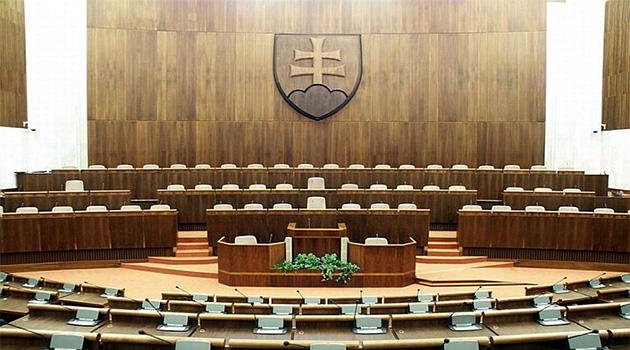Slovak Parliament adopts IHRA's working definition of anti-Roma racism

The Slovak news agency TASR has reported that the National Assembly of Slovakia has approved the working definition of anti-Roma racism that has been developed by the International Holocaust Remembrance Alliance (IHRA). Ján Hero, the Slovak Government Plenipotentiary for Roma Affairs, welcomed the decision.
Anti-Roma racism is, according to the definition, manifested through the actions and speech of individuals as well as through institutional polices and practices that disparage and devalue Romani cultures and lifestyles and exclude Romani people; through hate speech directed at Roma or the other groups and their individual members who were persecuted and stigmatized, both during the Nazi era and currently, as “Roma”; through the marginalization of Romani people; and through physical violence that targets Romani people. According to the definition, this leads to Roma being treated as an allegedly foreign group, associating them with a set of “pejorative stereotypes and distorted images that represent a specific form of racism”.
This definition was adopted by the IHRA member states, including Slovakia, on 8 October 2020. Hero has welcomed the approval of this working definition of anti-Roma racism.
Parliament is also recommending the Government undertake an analysis of the legal code of the Slovak Republic and, if necessary, draft legislation to amend the relevant regulations so that the activities and decision-making of the public authorities of the Slovak Republic respects the aforementioned definition and actively contributes to ensuring the safety of citizens of Romani origin through dialogue and structured consultation with civil society organizations and the relevant public institutions combating discrimination in all its forms. In association with the working definition, several declaratory and demonstrative examples of anti-Roma racism have been described, e.g.:
- denying or distorting the genocide or persecution of Romani people,
- adoration or glorification of the genocide of Romani people,
- committing, excusing or inciting violence against communities of Roma, their property, and individuals of Romani origin,
- coerced and forced sterilization as well as other mentally and physically abusive treatment of Romani people,
- confirming and upholding discriminatory stereotypes about and against Roma,
- accusing Romani people through the use of hate speech of being the source of actual or perceived problems in the areas of culture, the economy, public health and society,
- stereotyping Romani people as those who commit criminal behavior,
- using the term “cikán” (gypsy) as one of abuse,
- aprroving of or supporing exclusionary mechanisms targeting Romani people on the basis of discriminatory presuppositions based on their racialization, such as excluding Roma from mainstream schools and institutional processes, or policies leading to communities of Roma being segregated from non-Roma,
- adopting policies without any basis in law or establising conditions that facilitate the arbitrary or discriminatory displacement of communities of Roma and their individual members,
- inferring collective responsibility for the actual or perceived actions committed by individual members of Roma communities,
- disseminating hate speech against communities of Roma in any form, for example in the media, including the Internet and social networks.